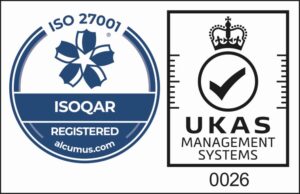: Examining how MSPs assist businesses in implementing effective IT governance frameworks, ensuring compliance, risk management, and alignment with business objectives.
In today’s digital landscape, effective IT governance is crucial for businesses to align their IT strategies with overall business objectives, manage risks, and ensure compliance with regulatory requirements. IT Managed Service Providers (MSPs) play a vital role in assisting businesses in implementing robust IT governance frameworks. Let’s explore how MSPs support businesses in achieving effective IT governance:
Framework Design and Implementation
MSPs work closely with businesses to design and implement IT governance frameworks tailored to their specific needs. They help define governance structures, policies, and procedures that align with industry best practices and regulatory requirements. MSPs assist in establishing governance committees, roles, and responsibilities to ensure clear accountability and decision-making processes.
Compliance Management
MSPs assist businesses in navigating complex compliance landscapes by ensuring adherence to relevant laws, regulations, and industry standards. They stay updated with evolving compliance requirements and help businesses implement appropriate controls and measures. MSPs conduct regular assessments, audits, and gap analyses to identify areas of non-compliance and provide guidance on remediation.
Risk Management
MSPs help businesses identify, assess, and manage IT risks. They assist in establishing risk management frameworks and methodologies, conduct risk assessments, and develop risk mitigation strategies. MSPs implement controls, such as access management, vulnerability assessments, and data encryption, to minimize risks associated with IT systems and infrastructure.
Vendor Management
IT MSPs play a significant role in managing relationships with IT vendors. They assist businesses in selecting vendors, negotiating contracts, and ensuring optimal vendor performance and service delivery. MSPs monitor vendor compliance, track service level agreements (SLAs), and conduct vendor risk assessments to minimize potential risks associated with third-party relationships.
Performance Monitoring and Reporting
MSPs provide businesses with visibility into their IT performance through monitoring and reporting mechanisms. They establish key performance indicators (KPIs) aligned with business objectives and track metrics related to service availability, response times, and system performance. MSPs provide regular reports and dashboards that enable businesses to assess the effectiveness of their IT governance initiatives.
Change Management
MSPs assist businesses in implementing effective change management processes. They help organizations plan and execute changes to IT systems, applications, and infrastructure while minimizing disruptions and risks. MSPs facilitate change impact assessments, develop change management procedures, and support businesses in communicating and managing stakeholder expectations during change initiatives.
IT Strategy Alignment
MSPs align IT strategies with overall business objectives. They collaborate with businesses to understand their vision, goals, and priorities. MSPs provide strategic guidance on leveraging technology to drive business growth, enhance operational efficiency, and achieve competitive advantage. They ensure that IT initiatives and investments align with the broader organizational strategy.
Continual Improvement
MSPs foster a culture of continual improvement in IT governance. They conduct regular assessments and reviews of governance processes, identify areas for improvement, and recommend enhancements to optimize governance effectiveness. MSPs stay informed about emerging technologies, industry trends, and regulatory changes to provide proactive recommendations for IT governance improvements.
By partnering with IT MSPs for IT governance, businesses can leverage their expertise, experience, and resources to implement effective governance frameworks. MSPs enable businesses to achieve compliance, manage risks, align IT strategies with business objectives, and drive continual improvement. With the support of MSPs, businesses can navigate the complex IT governance landscape with confidence and focus on their core operations.




